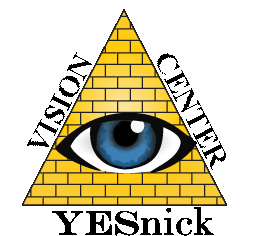
Allergic Conjunctivitis
Allergic conjunctivitis is the scientific name for this condition. It is caused, like any allergic reaction, by a mistaken triggering of your body's immune system. Allergens cause your immune system “panic” causing it to react negatively to things that actually pose no harm to the body at all.
Allergens such as pet dander, pollen and dust can trigger this reaction. This allergic reaction releases a chemical called histamine, which makes your eyes dry out and produce more tears. This reaction is meant to flush out foreign objects. The blood vessels in your eyes also become inflamed, which is what gives your eyes their bloodshot look.
Symptoms of Allergies
Symptoms of an allergic reaction can be quite varied. You may find that your eyes are red and irritated or itchy, that your eyes are sensitive to light or that your eyelids are swollen. In more severe cases, you may even notice a painful, sore or burning feeling in your eyes or suffer from excessive tearing or a runny nose. You may also experience sneezing and stuffy nose.
Eye allergy symptoms appear when your immune system reacts to a specific substance as an allergen. Common allergens include pollen (which leads to seasonal allergies, like hay fever), dust, perfumes, cigarette smoke, mold, pet dander, and cosmetics. In response to the allergen, your body releases antibodies into your bloodstream. In turn, these antibodies then release chemicals into your cells that lead to all the uncomfortable symptoms of an allergic reaction. The symptoms of eye allergies typically emerge very soon after you are exposed to the allergen. While your vision is not in any danger, these symptoms can be painful.


Q: What Causes Eye Allergies?
- A: Many things may cause an allergic reaction. Grass, weed, and tree pollen, as well as dust and pet dander, are among the best-known allergens. Less well known is that it is also possible for a person to be allergic to everyday items such as makeup or perfume, and even contact lenses. Also not well known is that, while it is very common for allergic symptoms to come out immediately upon contact with the allergen, it is also possible for an allergic reaction to present itself as much as four days after original contact with an allergen.
Treatments for Eye Allergies
Although allergies usually stop once the allergen is removed, and the eyes return to normal, this is not always possible with allergens such as dust and pollen, since they are just about everywhere. For these and other allergies, eye doctors recommend eye drops either over the counter or prescription.
These eye drops should help to minimize the effects of the allergens in your environment. Many of these eye drops are formulated as anti-histamines, meaning that they block histamine from the body. There are also a number of other ways that these eye drops will work to relieve or prevent allergic symptoms.
Artificial tears are also an excellent option to relieve dry eye symptoms caused by allergens. These eye drops are specially formulated to imitate the tears that the allergic reaction has dried up. Artificial tears are mostly by prescription and have proven to perform better in some cases than over the counter eye drops.


How to Get Relief From Eye Allergies
An effective way to relieve ocular symptoms due to allergies is to place a cold compress gently over the eyes. When that does not do the trick, mild antihistamine eye drops generally bring relief, followed by prescription eye drops for more severe symptoms. Eye allergies are highly individual and an eye doctor must perform a thorough eye exam to determine the best, most suitable treatment.
Several other ways to reduce or relieve symptoms exist as well. Wearing sunglasses when stepping outside helps block pollen, dust, and other outdoor allergens from getting in your eyes. Contact lenses may also irritate your eyes, so try taking those out if nothing else works. Finally, never rub your eyes while experiencing an allergic reaction. No matter how much they itch, rubbing will irritate your eyes further and make things worse.
